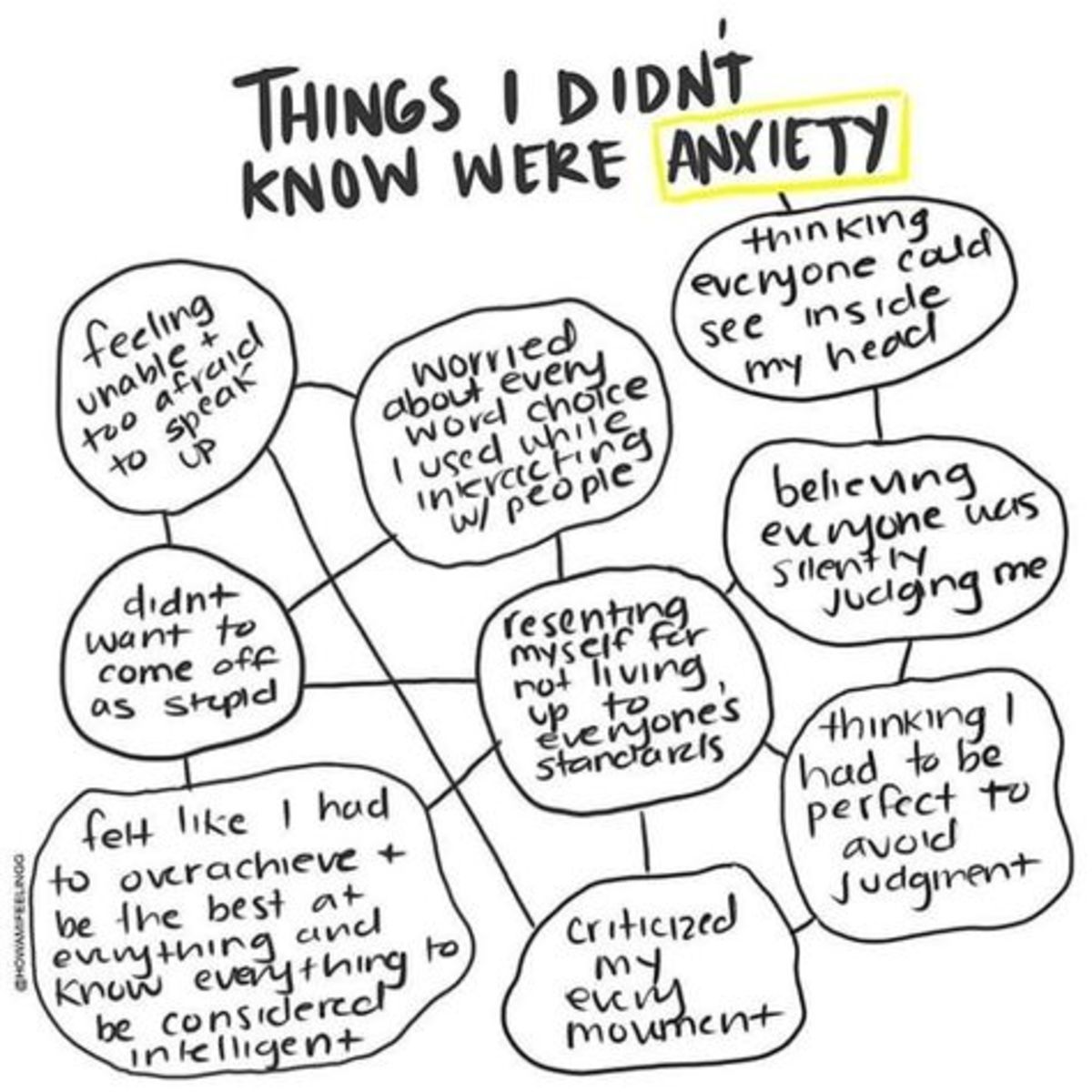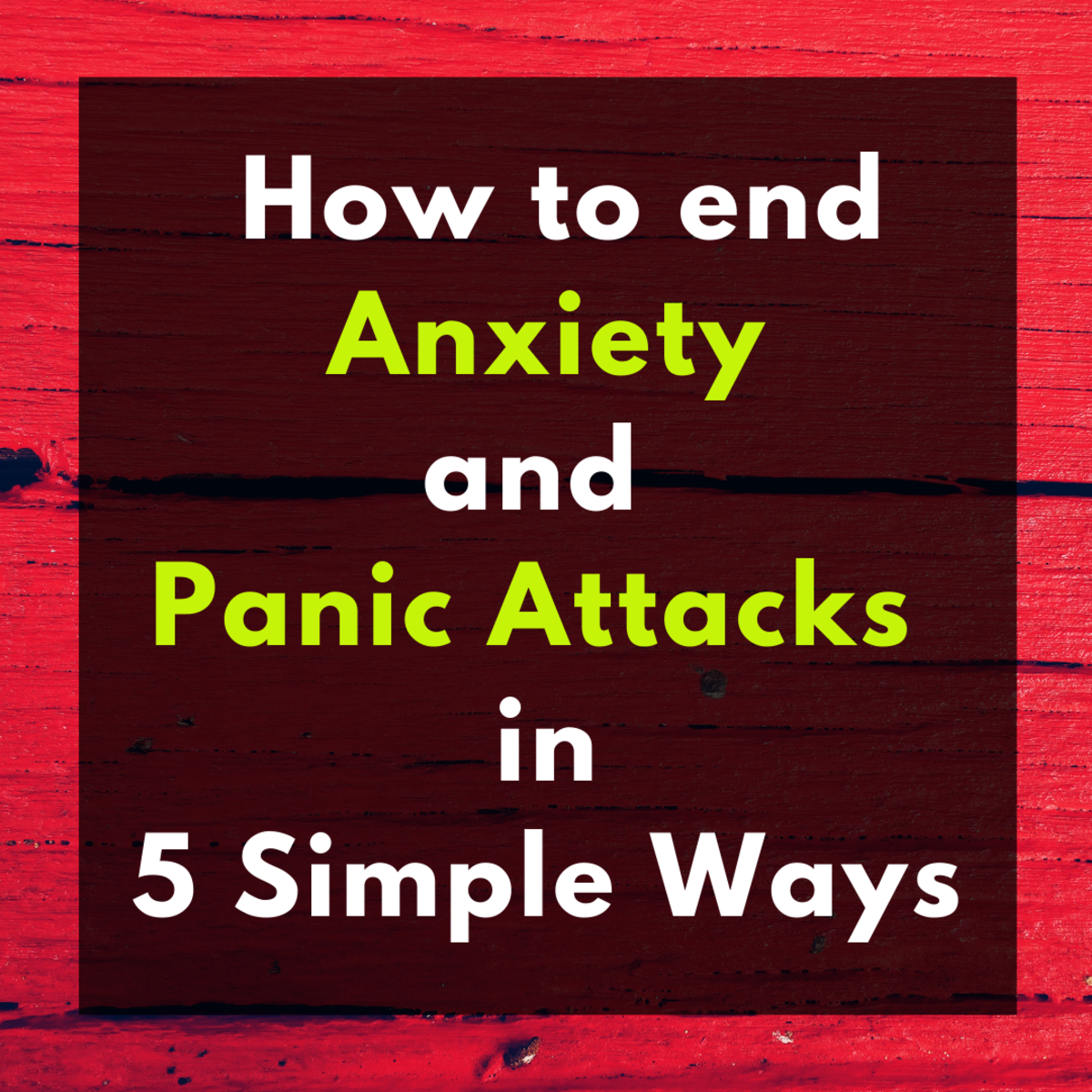- HubPages»
- Health»
- Mental Health»
- Anxiety Disorders
Severe Panic Attack Help: How to Deal With Your Partner's Attack
Severe Panic Attack Help

Introduction
According to the American Psychiatric Association (APA), about one out of 75 people may suffer from panic attack disorder.
A severe panic attack can make the partner of the person who suffers the attack feel miserable and worried for the health and life of his or her partner.
So, if your partner suffers severe panic attack, what is the help you can give to him or her? What should you do in that situation, and how can you help your partner to solve the problem?
Educate Yourself About Panic Attacks
You may find it hard to appreciate what your boyfriend, girlfriend, husband or wife is going through and that may make you show condescending behavior towards him or her. As a result, your partner may misunderstand you and, consequently, you may have fights which may destabilize the relationship.
Therefore, seek knowledge about the disease from a credible website such as apa.org. This will help you to know what you can do to support your partner in case of an attack.
Additionally, you will acquire skills that will help you to manage the attacks that your partner may suffer better.
Remain Calm
You need to keep a cool head when your partner is experiencing an attack. This will help you to convey a sense of strength which can make your partner feel that he or she is in good hands, which in turn will help him or her to calm down.
On the other hand, if you panic yourself, you will make your partner feel more anxious and, as a result, his or her attack can get worse.
Reassure Your Partner Without Touching Him or Her
Then, in a clear, firm, steady but calm voice, inform your partner about what is going on. Additionally, reassure him or her of your support and care.
Furthermore, you may feel like hugging your partner to show that you are there for him or her. However, when you touch your partner when he or she has not asked you to, or when you touch your partner when he or she does not expect that action from you, can make the attack worse.
So, desist from touching your partner, unless he or she requests that action.
Encourage Your Partner to Discuss How He or She is Feeling
When a person has a severe panic attack, the person may feel as though he or she is trapped in his or her mind. One thing that the person can do to overcome this feeling is to share his or her feelings with someone.
Therefore, when you see signs of an attack, or when your partner is going through an attack, encourage your lover to talk about how he or she is feeling.
Additionally, broach a topic that you know your partner loves taking about so that you can encourage him or her to feel more relaxed.
Furthermore, do your best to offer words of encouragement. Say something such as, “Darling, it’s okay. You are not trapped. I am here to help you.”
Move Your Partner to a Safe Environment
If your partner is panicking or if your partner is uncomfortable with where he or she is, ask your partner if he or she wants to move to a more comfortable place.
If your partner assents, calmly help him or her to move to a location where he or she will feel more comfortable. Doing this can make the attack fade faster.
Let Your Partner Control His or Her Breathing
One of the symptoms of a panic attack is the fact that the man or woman who is going through this experience may find it difficult to breathe.
So, you may need to help your partner to breathe properly. To do this, help your partner to focus on his or her breathing by encouraging him or her to take deep breaths.
Additionally, encourage your partner to exhale for longer periods than he or she inhales—encourage him or her to breathe in for about two seconds, and then breath out for about five seconds.
By doing this, your partner’s body will get the signal that there is no danger to worry about and that will help your partner to calm down.
Remind Your Partner That the Attack is Only Temporary
A person who is experiencing a panic attack may feel that the experience may continue for a long time, and that can make him or her get more anxious which can make the attack worse.
However, a severe panic attack normally reaches the worst point in about 10 minutes and then the attack weakens in intensity.
So, remind your partner of the fact that the attack will go away in no time. That will give your partner mental relief and help to comfort him or her. Moreover, remind your partner that he or she is not in any danger so that your partner will find it easier to relax.
Do Not Leave Your Partner
Some people with panic disorder sometimes ask their partner to leave their presence when they are experiencing an attack. But that happens because, sometimes, they just lose focus and get confused.
If you are around when the attack occurs, ensure that you do not leave the side of your partner, even if he or she asks you to. Ignore that request and stick with your partner so that you can help him or her deal with their thoughts—panic attacks normally get worse when the sufferer has to deal with his or her thoughts all by himself or herself.
What You Should Say to the Person
When you say the right words so that you can send a positive message to the person with the disorder, your partner will be encouraged and that can help your partner to go through the attack successfully.
Therefore, choose positive words that will help to lower the stress and tension that your partner may be experiencing. Words such as, “You will overcome,” “You will conquer,” and “There is nothing to worry about” have positive connotations and can help your partner to feel more positive about the situation.
Furthermore, use words that will make your partner feel that he or she is in control of the situation because a panic attack can make a person feel as though he or she is losing control.
Therefore, use words such as “You are the boss here, baby,” or “You are not helpless. You can do something to handle the situation,” can help to prevent the sufferer from feeling overwhelmed.
The Method of Communication You Must Use
A person experiencing a panic attack finds it difficult to process large chunks of information properly. Therefore, communicate with your partner in short, simple sentences so that he or she can respond appropriately.
For example, instead of saying something such as, “Honey, you are a brave woman and I know you can get through this attack. I believe you have the spirit to ride this storm. Remain calm, darling! Hang right in there! I am with you all the way! Just relax because everything is under control. Nothing bad is going to happen to you,” rather say, “Darling, you will get through it. Just be calm. Everything will be alright.”
Never Discuss an Attack
One thing you should know about panic attacks is that thinking about past attacks can actually trigger another attack in a person with this kind of disorder.
Therefore, desist from talking about the attacks your partner has experienced in the past, if your partner does not make reference to them in the conversations he or she has with you, or if there is no indication your partner is thinking about his or her panic attacks.
All you must do is to build trust between your partner and yourself so that your partner will feel comfortable talking to you when he or she sees signs of an attack so that you can help him or her.
Let Your Partner Seek Treatment
There are a number of treatment optionsthat can help your partner to overcome this disorder.
So, encourage your partner to choose to seek treatment at a medical facility that specializes in treating panic attacks.
Then, show that you are committed to helping your partner solve the problem by offering words of encouragement often and by accompanying your partner when he or she consults the doctor.
Pray for Your Partner and Let Them Pray for Themselves
One name by which God ask us to call Him is the name “Jehovah-rafai” which means “the Lord our Healer.” God has got the power to heal all manner of diseases, including panic attack disorder.
So, have faith in the God, the Omnipotent Power with whom nothing is impossible. Every day, intone prayers such as this one for your partner, “Dear Heavenly Father, Great Jehovah-rafai, I thank You for Your mercies and Your grace which have sustained us through the troubles we have faced in our relationship so far. Lord, we face another challenge—Isaac suffers from severe panic attacks sometimes and I want You to help him. These attacks lower the quality of our relationship and make me feel sad because I hate to see Isaac suffer like that. I know You are able to heal even incurable diseases. Lord, please heal Isaac so that we can enjoy our relationship. Just as You healed Naaman, lepers, cripples, the blind, and the epileptics, please heal Isaac for Your glory. Amen.”
Furthermore, encourage your partner to pray for himself or herself because some people have overcome this disorder through prayers.
Conclusion
If your lover or spouse suffers a severe panic attack, you can help him or her to survive the attack successfully by encouraging your partner to talk, helping your partner to breathe properly, communicating appropriately with your partner, and then seeking medical and spiritual help later.
Severe Panic Attack Help
Did you know the symptoms of a panic attack before now?
© 2017 Isaac Yaw Asiedu Nunoofio








